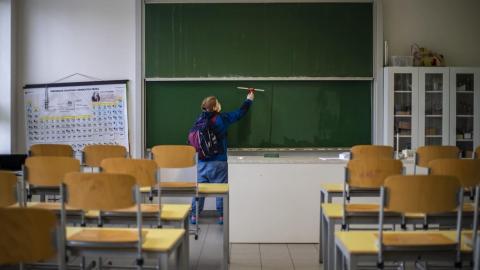Czech Culture War Targets Education Reforms

Populists like Anderle appear to believe that opposing inclusion in education offers an opportunity to attract voters. It didn't work in the Brno Senate election - the SPD candidate was ousted in the first round - but the issue remains a powerful racist dog whistle, while also being a favourite of staunch conservatives and vested interests.
(L-R) Tomio Okamura, leader of Czech far-right Freedom and Direct Democracy party, French Marine Le Pen, president of the Rassemblement National (RN) and Dutch far-right politician Geert Wilders of the PVV party attend the MENF (Movement for a Europe of Nations and Freedom) meeting in Prague, Czech Republic, 25 April 2019. EPA-EFE/MARTIN DIVISEKEnd of segregation
The Czech Republic spent 25 years after the fall of communism as the focus of significant criticism from the likes of the EU over its "segregationist" education policy regarding pupils with special educational needs. A common charge was that it was wielded as a form of institutional racism, with Roma children routinely sent to special schools.
These policies produced horrifying statistics over the years. Over 30% of all Roma pupils attended special schools in 2014, compared with an average of 2% for non-Roma, according to the Council of Europe. The percentage of Roma children in mainstream schools was just 9.5%.
Despite such statistics, opponents of inclusion flatly reject suggestions that calls for a return to segregation in Czech education are driven by racism. Marta Semelova, an education specialist for the Communist Party (KSCM), would only state bluntly to BIRN that such claims are "not true".
Yet it's hard not to believe that it's exactly this kind of legacy that prompts parties like the SPD and Communists to...
- Log in to post comments
